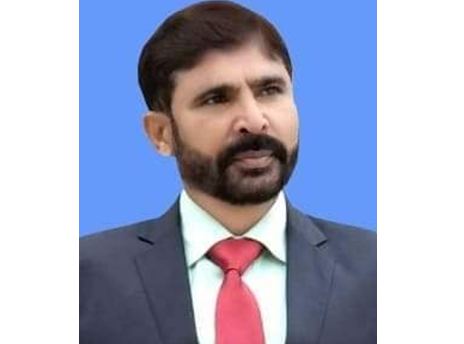Dr. Muhammad Akram Zaheer
The escalating intensity of hostilities between Hezbollah and Israel is attached with the rising rhetoric from officials on both sides that suggest a troubling path towards a potentially devastating conflict. While the confrontations may indicate a path towards a large-scale war, it is an evident that both parties are acutely aware of the devastating toll such a conflict would exact on civilian populations in both Lebanon and Israel. The historical context of previous conflicts between Hezbollah and Israel underscores the magnitude of the potential consequences, including widespread destruction, loss of life and destabilization of the region. Despite the heightened tensions, there remains recognition albeit uneasy of the imperative to avoid a full-scale war and seek avenues for de-escalation and resolution. The complexity of the geopolitical scene which is intertwined with regional alliances and interests to underscores the importance of diplomatic efforts to defuse tensions and prevent further escalation. Ultimately, the recognition of the immense human cost of conflict underscores the necessity for all stakeholders to prioritize dialogue and diplomacy in pursuit of peace and stability in the region.According to Israeli officials, tensions along the Israel-Lebanon border have escalated significantly, with clashes intensifying and spreading in recent weeks. Israel has reportedly increased its military strikes, targeting not only areas within Lebanese territory but also conducting airstrikes against Iranian-affiliated sites in Syria, including the Iranian consulate in Damascus on April 1st. In response to these developments, Hezbollah Secretary-General Hassan Nasrallah delivered a speech on April 5th, affirming Hezbollah’s commitment to continued border clashes with Israel and declaring that the group will persist in its attacks until the cessation of hostilities in Gaza. Nasrallah also warned Lebanon to brace itself for potential Iranian retaliation against Israel, emphasizing Hezbollah’s preparedness for any escalation along the border and asserting that the group has yet to deploy its most potent weaponry. These developments underscore the precarious situation in the region, with the potential for further escalation and broader regional implications.
On April 7, the Israeli army made a significant announcement on its website, declaring the completion of yet another phase of the Northern Command’s readiness for war along the Lebanon front. This announcement has intensified the concerns of analysts, who increasingly argue that prolonged border clashes heighten the likelihood of a broader conflict, potentially culminating in a ground invasion of southern Lebanon. Such a military operation would be strategically aimed at establishing a security corridor deep into Lebanese territory, pushing Hezbollah fighters beyond the Litani River. However, historical precedents cast doubt on the effectiveness of such endeavors. Israel’s previous attempt to create a security corridor in south Lebanon, spanning from 1985 to 2000, ended without achieving the desired stability. Despite past reservations from Israeli political and military officials regarding ground combat in Lebanon, there has been a perceptible shift in attitude. Amos Harel suggests that given this shift, the scenario of a general war in Lebanon no longer appears implausible. Yet, the complexities of the region and the historical challenges associated with similar endeavors suggest that any such military action is fraught with uncertainties and risks, casting a shadow over Israel’s aspirations for stability along its border with Lebanon.Israeli officials find themselves in a precarious position, carefully weighing two critical factors in their decision-making regarding a potential full-blown war with Hezbollah. Firstly, the prospect of such a conflict escalating into a broader regional conflagration cannot be overlooked, as it’s highly likely that other members of the Iran-led “Axis of Resistance” would join forces against Israel and the US. This amplifies the risks and complexities involved, given the already strained dynamics in the Middle East. Secondly, the stance of the Biden administration adds another layer of consideration. With clear opposition to a significant escalation in Lebanon, Israeli initiation of such a war, particularly amidst US calls for cease-fires in Gaza and objections to Israeli actions in Rafah, could significantly strain the bilateral relationship with the United States. The intensifying skirmishes between Hezbollah and Israel, coupled with heightened rhetoric from both sides, signal a potential path toward a large-scale conflict, reminiscent of the scale of hostilities seen in Gaza. However, amidst this escalating tension, both Israeli and Hezbollah officials are cognizant of the devastating humanitarian toll such a war would exact on civilians in both Lebanon and Israel. Furthermore, there’s a sober recognition within Israeli circles that the outcomes of a new conflict with Hezbollah are uncertain, with lingering doubts about whether it would result in a resolution akin to the 2006 war, which led to the UN Security Council Resolution 1701, ultimately unimplemented by either side. Therefore, Israeli officials face a delicate balance, contemplating the risks of escalation, the implications for regional stability, the diplomatic ramifications vis-à-vis the US, and the potential human cost, as they navigate the complexities of their decision-making calculus concerning Hezbollah.
UNSCR 1701 stands as a pivotal framework aiming to defuse tensions and promote stability in the volatile region surrounding the Israeli-Lebanese border. Central to its provisions is the call for militants not affiliated with the Lebanese army or the UN Interim Force in Lebanon (UNIFIL) to withdraw approximately 25 miles north of the Israeli border, alongside urging Israel to relinquish its hold on occupied Lebanese territories and to cease violations of Lebanese airspace. Amidst this backdrop, key stakeholders including Lebanese officials, Hezbollah leaders, and Israeli authorities have expressed a collective inclination towards pursuing diplomatic avenues to resolve the persistent conflict along the border. Hezbollah’s stance notably hinges on the cessation of hostilities in Gaza as a condition for their approval of any potential agreement. The United States has emerged as a proactive actor, proposing a roadmap aimed at addressing the divergent demands of both sides through a series of security arrangements. Notably, this proposal falls short of a complete implementation of UNSCR 1701. It envisions Hezbollah’s withdrawal, particularly its elite Radwan Forces, northwards to the Litani River, while concurrently advocating for heightened presence of the Lebanese army and UNIFIL in the vacated areas. Additionally, the US seeks to facilitate mediation efforts between the conflicting parties to address territorial disputes along the border, mirroring its prior successful intervention in mediating maritime border disputes. This multifaceted approach underscores the intricate dynamics at play and the concerted international efforts aimed at fostering lasting peace and stability in the region.
The fate of the ongoing indirect negotiations between Hamas and Israel, facilitated by Qatar, Egypt, and the US, is crucial for the region’s stability. These talks aim to broker a ceasefire deal that would lead to the release of Israeli hostages held by Hamas and Palestinian prisoners in Israeli jails. The outcome of these negotiations carries significant implications, not only for the Israel-Palestine conflict but also for wider regional dynamics. If successful, Hezbollah is likely to adhere to the ceasefire agreement, potentially reducing tensions in the region. However, should these negotiations falter, it could exacerbate hostilities, especially if Israel responds to Iranian retaliation by targeting Iranian assets both inside and outside Iran. Such actions could prompt Hezbollah and other members of the Axis of Resistance to escalate attacks on Israel, raising the specter of a full-blown war between Israel and Lebanon. In this scenario, the United States may face renewed pressure to intervene and mediate between Israel and Lebanon to prevent further escalation and restore stability in the region.

















